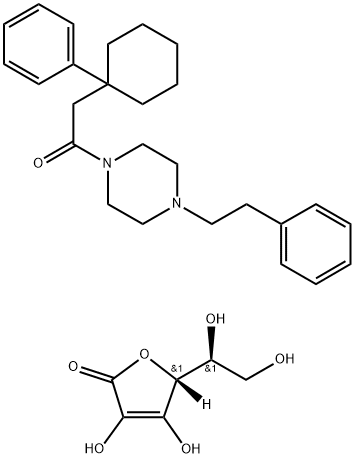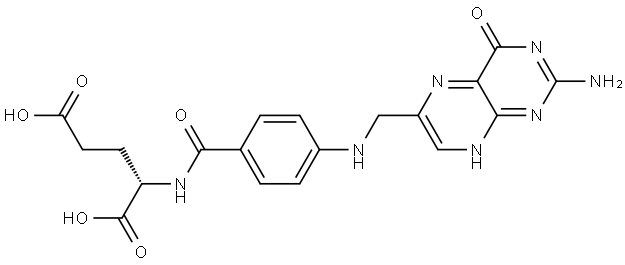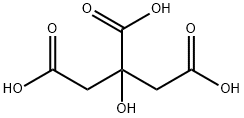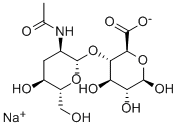Ribonucleic acid
Synonym(s):Ribonucleic acid from torula yeast;RNA;Transfer RNA;tRNA;Yeast Phe tRNA
- CAS NO.:63231-63-0
- Molecular Weight: 0
- MDL number: MFCD00132196
- EINECS: 277-256-7
- Update Date: 2025-12-17 09:49:51
What is Ribonucleic acid?
Chemical properties
White powder
The Uses of Ribonucleic acid
ribonucleic acid (RNA) is a surface film-forming agent with moisturizing action. This is the polyribonucleotide found in both the nucleus and the cytoplasm of cells.
The Uses of Ribonucleic acid
Ribonucleic acid (RNA) from baker?s yeast?S. cerevisiae?may be used as a substrate for studying ribonuclease activities of enzymes such as RNAase(s). It is also suitable for use as a carrier in nucleic acid purification and precipitation.
The Uses of Ribonucleic acid
Ribonucleic acid (RNA) from torula yeast may be used as a substrate for studying ribonuclease activities of enzymes such as ribonuclease-A, ribonuclease T1 (RNAase) and bougainvillea xbuttiana antiviral protein 1 (BBAP1).
What are the applications of Application
Ribonucleic acid (from torula yeast) is a Ribonucleic acid that is derived from torula yeast
General Description
Transfer RNA is isolated from brewer′s yeast. This transfer RNA is specific for transfer of the amino acid phenylalanine.
The phenylalanine acceptor activity of 100% pure tRNA is 1,800 pmoles per A260 unit. Comparison of this number to lot-specific analysis may be used as an indication of product purity. Methods to further purify tRNA have been published.
The assay for this product is based on a published method. The activity is measured using a crude preparation of phenylalanyl transfer ribonucleic acid synthetase. The phenylalanine specific tRNA is used as a substrate for the enzyme in the assay.
This product is not suitable for use as carrier tRNA to aid in the ethanol precipitation of very small amounts of DNA. Product Nos. R 8508 and R 5636 are recommended for use as carrier tRNA for DNA purification and precipitation.
Agricultural Uses
Ribonucleic acid (RNA) is a generic term for a group of
natural polymers, consisting of long chains of alternating
phosphate and D-ribose units, with bases adenine,
guanine, cytosine and uracil bonded to the 1 position of
the ribose. Ribonucleic acid is universally present in
living cells and has a functional genetic specificity due to
the sequence of bases along the polyribonucleotide chain.
The following four types of RNA are known:
(i) Messenger RNA: It is synthesized in the living
cell by the action of an enzyme that carries out the
polymerization of ribonucleotides on a DNA template
region which carries the information for the primary
sequence of amino acids in a structural protein. It is a
ribonucleotide copy of the deoxynucleotide sequences in
the primary genetic material.
(ii) Ribosomal RNA: It exists as a part of a functional
limit within living cells, called the ribosome, a particle
containing protein and ribosomal RNA in roughly 1:2
parts by weight, having a particle weight of about 8
million. Messenger RNA combines with ribosomes to
form polysomes containing ribosome units, usually 5 ,
complexed to the messenger RNA molecule. This
aggregate structure is the active template for protein
synthesis.
(iii) Transfer RNA: It is the smallest and best
characterized RNA. Its molecules contain about 80
nucleotides per chain. There are at least twenty separate
kinds, correspondingly related to each of the 20 amino
acids naturally occurring in proteins. Transfer RNA must
have at least two kinds of specificity. (i) It must recognize
(or be recognized by) the proper amino acid activating
enzyme so that the proper amino acid will be transferred
to its free 2' or 3' -OH group. (ii) It must be recognized as
the proper triplet on the messenger RNA-ribosome
aggregate. Having these properties, transfer RNA
accepts or forms an intermediate transfer RNA amino
acid that finds its way to the polysome, complexes at a
triplet coding for the activated amino acid, and allows
transfer of the amino acid into peptide linkage.
(iv) viral RNA: It is isolated from bacterial viruses,
and animals and may be considered as a polycistronic
messenger RNA. It has a molecular weight of 1 to 2
million. Generally, there is one molecule of RNA per
infective virus particle. The RNA of RNA virus can be
separated from its protein component and is also
infective, bringing about the formation of complete
virus.
Properties of Ribonucleic acid
| storage temp. | 2-8°C |
| solubility | H2O: 10 mg/mL, very faintly turbid, faintly yellow |
| form | lyophilized powder |
| color | Off-white to Pale Brown |
| Water Solubility | It is soluble in water. |
| EPA Substance Registry System | Ribonucleic acids (63231-63-0) |
Safety information for Ribonucleic acid
Computed Descriptors for Ribonucleic acid
New Products
4,4-Difluoropiperidine hydrochloride tert-butyl 9-methoxy-3-azaspiro[5.5]undecane-3-carboxylate Indole Methyl Resin N-Isopropylurea N,N-Dicyclohexylcarbodiimide(DCC) MELDRUMS ACID 5-METHYLISOXAZOLE-4-CARBOXYLIC ACID Magnessium Bis glycinate Zinc ascorbate 1-bromo-2-butyne 2-acetamidophenol 9(10H)-anthracenone Erythrosin B, 4-Piperidinopiperidine 2-((4-morpholinophenylamino) (methylthio) methylene) malononitrile 2,4-dihydroxybenzaldehyde 3-(4-morpholinophenylamino)-5-amino-1H-pyrazole-4-carbonitrile Methyl 2-methylquinoline-6-carboxylate 2,6-dichloro-4-nitropyridine 4-Bromo-2-chlorobenzonitrile 2-(benzylamino)acetic acid hydrochloride 4-(tert-Butoxycarbonylamino)but- 2-ynoic acid 3,4-dihydro-2H-benzo[b][1,4]dioxepine 1-Phenyl-1-cycloprppanecarboxylicacidRelated products of tetrahydrofuran








You may like
-
 Ribonucleic acid powder CAS 63231-63-0View Details
Ribonucleic acid powder CAS 63231-63-0View Details
63231-63-0 -
 Ribonucleic acid from baker's yeast (S. cerevisiae) CAS 63231-63-0View Details
Ribonucleic acid from baker's yeast (S. cerevisiae) CAS 63231-63-0View Details
63231-63-0 -
 Ribonucleic acid, from baker's yeast (S. cerevisiae) Type III CAS 63231-63-0View Details
Ribonucleic acid, from baker's yeast (S. cerevisiae) Type III CAS 63231-63-0View Details
63231-63-0 -
 Ribonucleic acid (spezial) CAS 63231-63-0View Details
Ribonucleic acid (spezial) CAS 63231-63-0View Details
63231-63-0 -
 Ribonucleic acid from baker′s yeast (S. cerevisiae) CAS 63231-63-0View Details
Ribonucleic acid from baker′s yeast (S. cerevisiae) CAS 63231-63-0View Details
63231-63-0 -
 Ribonucleic acid from torula yeast CAS 63231-63-0View Details
Ribonucleic acid from torula yeast CAS 63231-63-0View Details
63231-63-0 -
 Ribonucleic Acid, Yeast CAS 63231-63-0View Details
Ribonucleic Acid, Yeast CAS 63231-63-0View Details
63231-63-0 -
 Ribonucleic acid diethylaminoethanol salt CAS 63231-63-0View Details
Ribonucleic acid diethylaminoethanol salt CAS 63231-63-0View Details
63231-63-0
